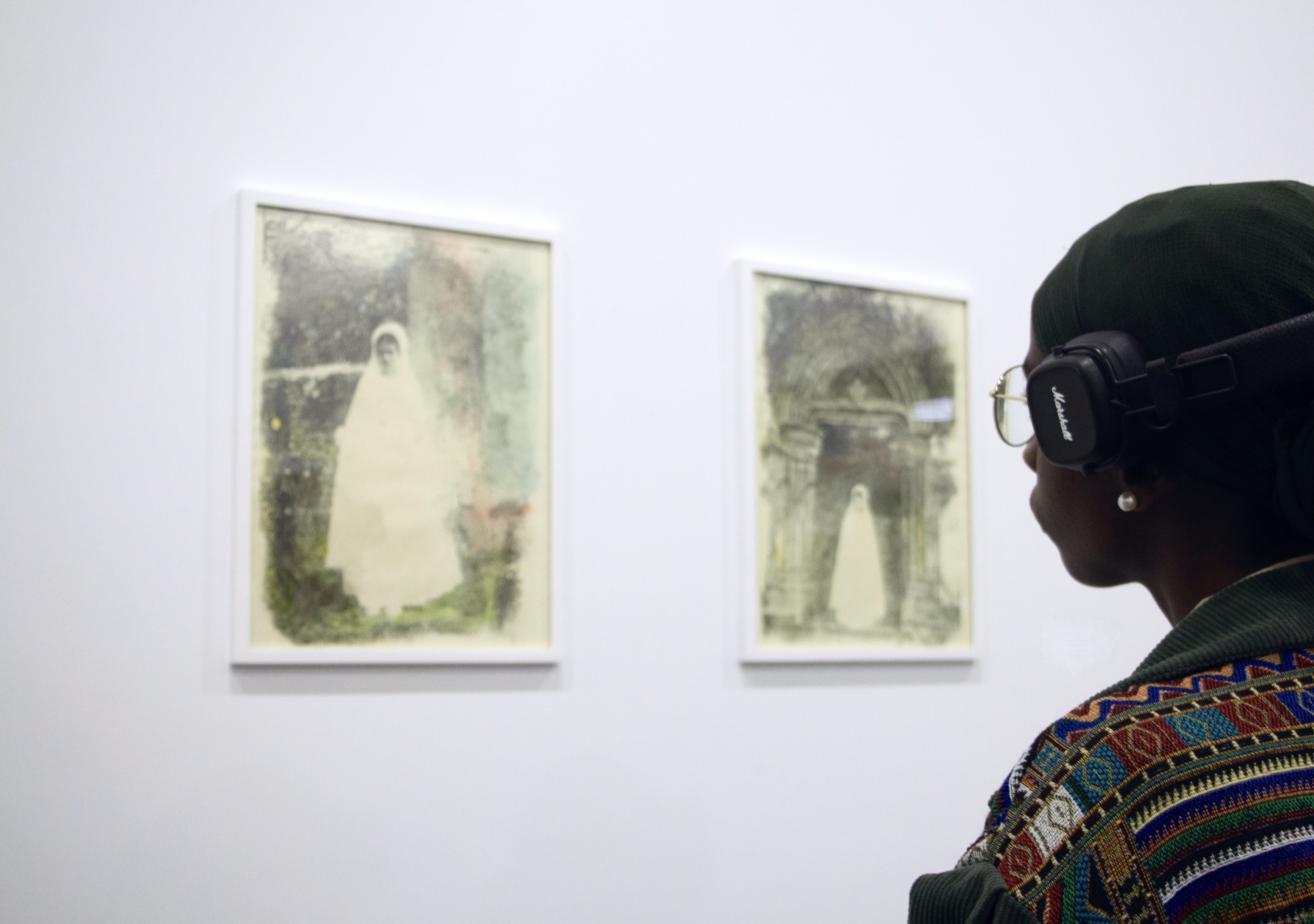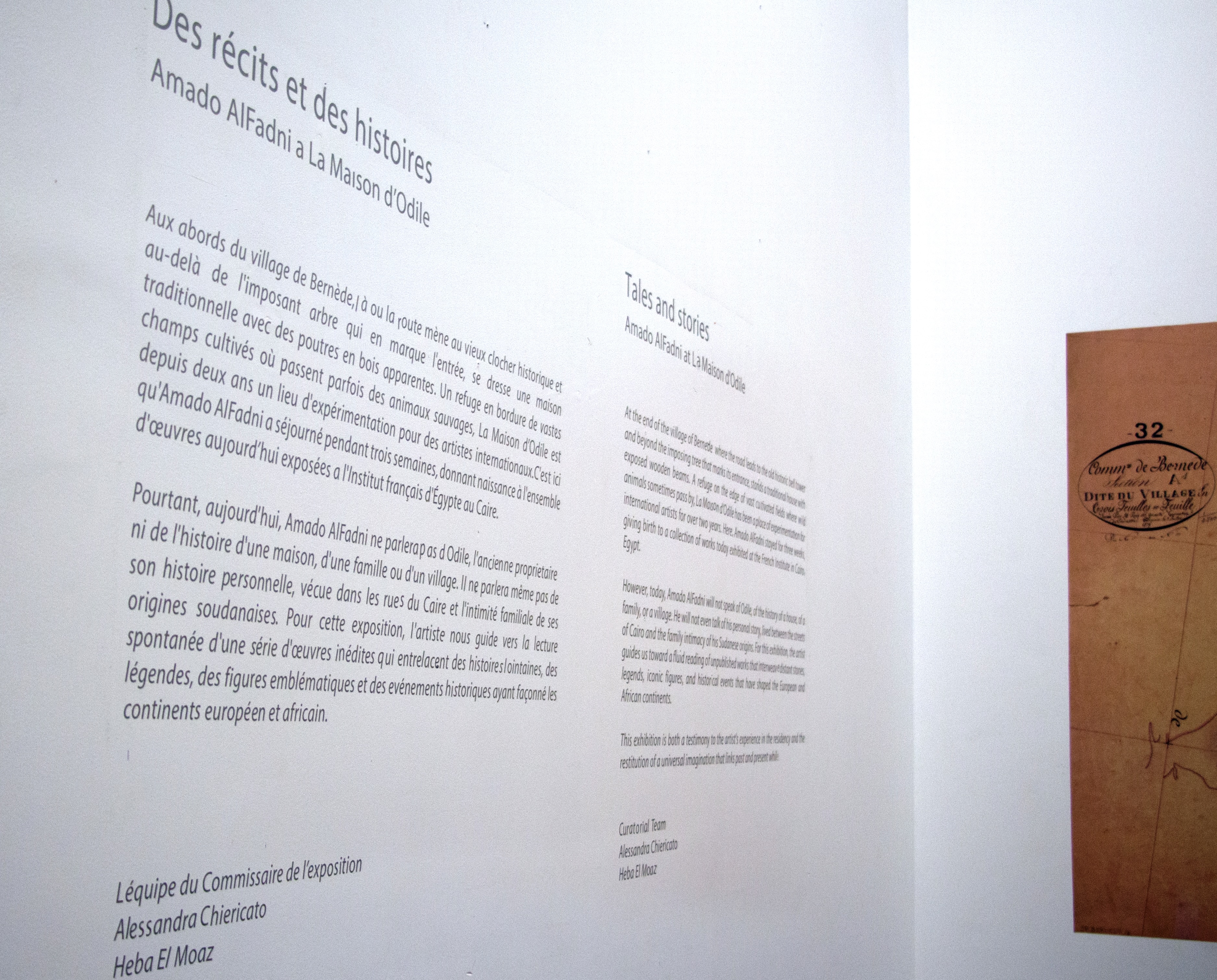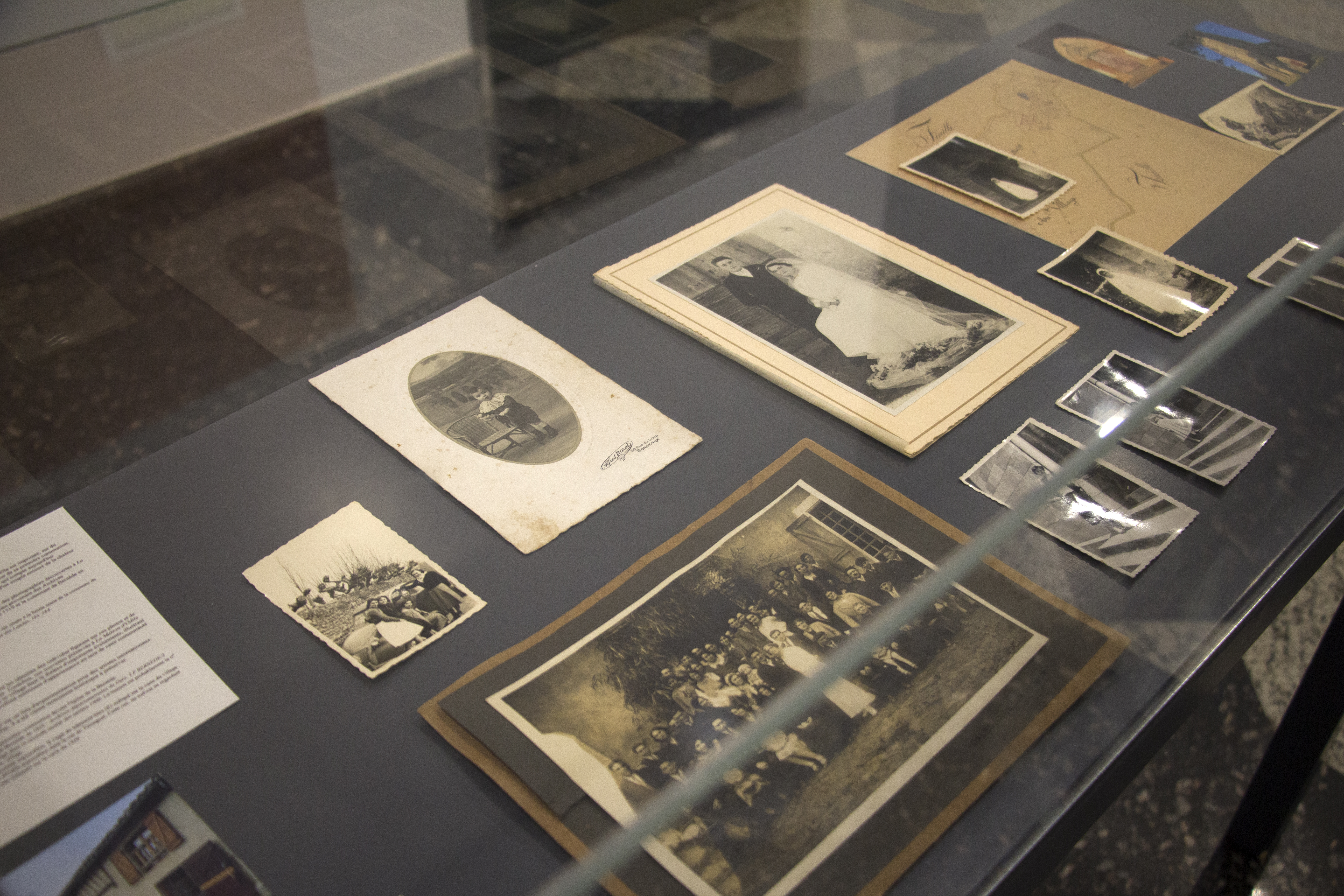Amado Alfadni.
Des récits et des histoires.
EXHIBITION : 15.11.23 – 23.12.23
A solo exhibition by Amado Alfadni
Curated by Alessandra Chiericato & Heba El Moaz
Institu français d’Égypte au Caire
1 Madrasset El Huquq El Frinseya Road,
El Mounira, Caire, Egypt




notes.
(1) A French military expedition from 1861 to 1867 intending to establish a regime in Mexico favorable to French interests.
At the end of the village of Bernède, where the road leads to the old historic bell tower and beyond the imposing tree that marks its entrance, stands a traditional house with exposed wooden beams. A refuge on the edge of vast cultivated fields where wild animals sometimes pass by, La Maison d’Odile has been a place of experimentation for international artists for over two years. Here, Amado AlFadni stayed for three weeks, giving birth to a collection of works today exhibited at the French Institute in Cairo, Egypt.
The story surrounding this residence is intimate and complex. It has been captured on the yellowed photographic paper, in the gaze of young Odile dressed in white on the day of her first communion, in the smiles of the inhabitants of a little countryside village – which now has only 204 souls – in the grandeur of the happy memories of a couple surrounded by the warmth of parents and friends a few houses away. Then, something seems to disturb the tranquility of this small Gascon village: Odile abruptly leaves the family nest and will not return until much later to die within the walls that have marked her tumultuous youth.
However, today, Amado AlFadni will not speak of Odile, of the history of a house, of a family, or a village. He will not even talk of his personal story, lived between the streets of Cairo and the family intimacy of his Sudanese origins. For this exhibition, the artist guides us toward a fluid reading of unpublished works that interweave distant stories, legends, iconic figures, and historical events that have shaped the European and African continents. Black and white photographs from the archives of La Maison d’Odile serve as a backdrop for multiple reflections, research, and imaginaries that tell us about a specific moment in the second half of the 19th century when an Egyptian battalion (mainly composed of Sudanese) fought for France during their second exploration in Mexico1.
Although not directly related to the village of Bernède, the traces of this historical moment allow Amado AlFadni to pursue some research that has enriched his work. The 16 monotypes from his residency (unique copies made in the form of non-engraved prints) are the natural outcome of his work on photographic archives. Although the historical material used represents a rural community in the southwest of France, these photographs – as in the Miss Khartoum series, where the artist reflected more broadly on the role of women in Sudanese society from the 1950s – are merely a pretext to address themes such as identity, the (non) sense of belonging, prejudices that divide a community, or, on the contrary, actions that encourage breaking the barrier of stereotypes to meet others.
To complement these reflections, subtly incorporated into the black and white portraits are inscriptions in Arabic and Islamic illustrations dating back to the 16th century. Finally, by applying color using a traditional technique used in the 20th century interests by photographic studios in Egypt and much of North Africa, Amado AlFadni creates through these works a universal imagination that allows us to travel between the present and the past, bringing together distant places and communities in time and space.
With this series, Amado AlFadni guides us toward a cross-sectional reading of archive material, inviting us to deepen our relationship with image, representation, and history. The artist thus creates a new narrative that looks like an intimate journal and offers us a fresh interpretation of the research, exchanges, and encounters that marked his stay at La Maison d’Odile.
Text by Alessandra Chiericato
